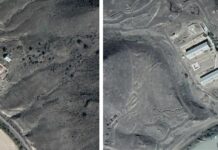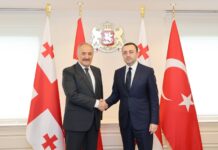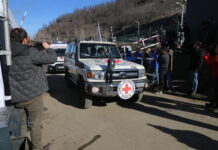Despite the ongoing Russian war against Ukraine and the continuing reassurances coming from NATO that Georgia’s interests are being taken into consideration, Georgia’s NATO accession process has come to an impasse. Instead of reaching a national consensus and keeping society united, the population remains divided and polarised.
The only progress that can be highlighted is the forthcoming manufacturing of unmanned aerial vehicles and the establishment of a Cyber Security Command.
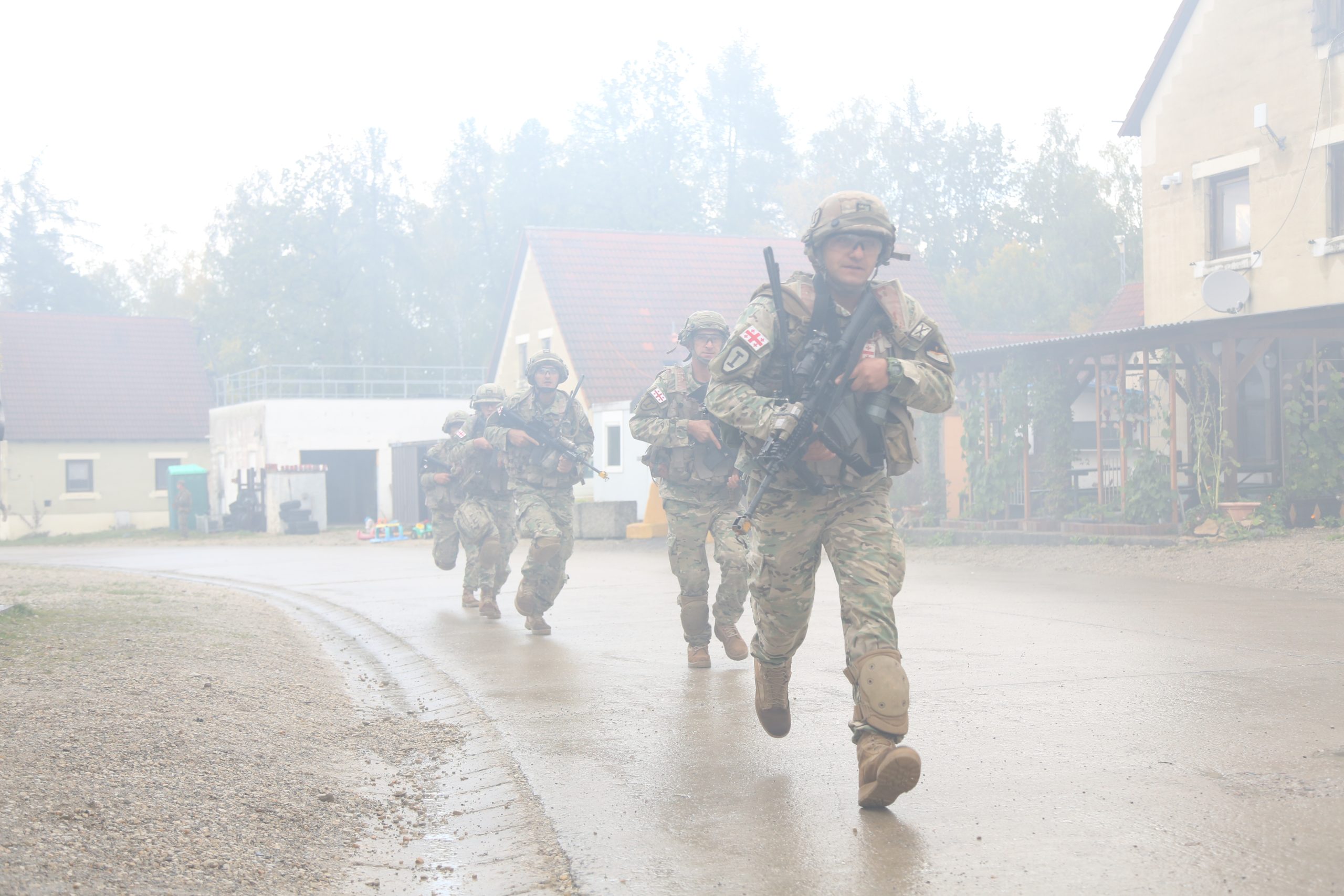
Difficult Realities
Despite deceptive external calm vis-à-vis ongoing skirmishes between Armenia and Azerbaijan, Iran’s military exercises on the border with Azerbaijan and Turkey’s ongoing operations against the PKK in Syria, Georgia remains vulnerable to any potential conflict with Russia. What is more, Georgia has no allies or partners that will come to its rescue in case of military conflict with Russia. Georgia is in a ‘grey area’ with respect to Russia, and will therefore need to rely on its own strengths and resourcefulness.
Lacking a potent air force, or sufficient air-defence and unmanned aerial vehicles (UAVs), Georgia’s Defence Forces remain at the risk of being defeated by Russia. Furthermore, when compared to Ukraine, Georgia lacks strategic depth and a strong and united Home Front that would bring the country’s population to support military efforts. As long as the country remains politically divided and the society is polarised, the chances for creating a strong and united Home Front remain elusive.
Economic ties further complicate these matters – according to a report by Transparency International Georgia published in November 2022, Georgia’s economic dependency on Russia has “significantly increased” compared to the previous year but has not [yet] reached the stage where Georgia would find itself in “deep crisis” if relations were suspended. For instance, Georgia received about USD 2.2 Bn from Russian remittances, tourism, and goods exported, between January and September 2022 which is 2.6× more than the income received from the same Russian sources in 2021. This is problematic for Georgia, as Russia can use its economic leverage to punish target countries with these dependencies. Thus far, it appears that the Georgian Dream (GD) government has not drawn the right conclusions regarding dependence on Russia.
What exactly can Georgia do to change the current difficult situation? Play an ambiguous NATO accession card that has so far failed to materialise into anything concrete? Try to overcome internal polarisation which hampers the country’s political consolidation, or procure the necessary weapon systems to ensure the country’s security?
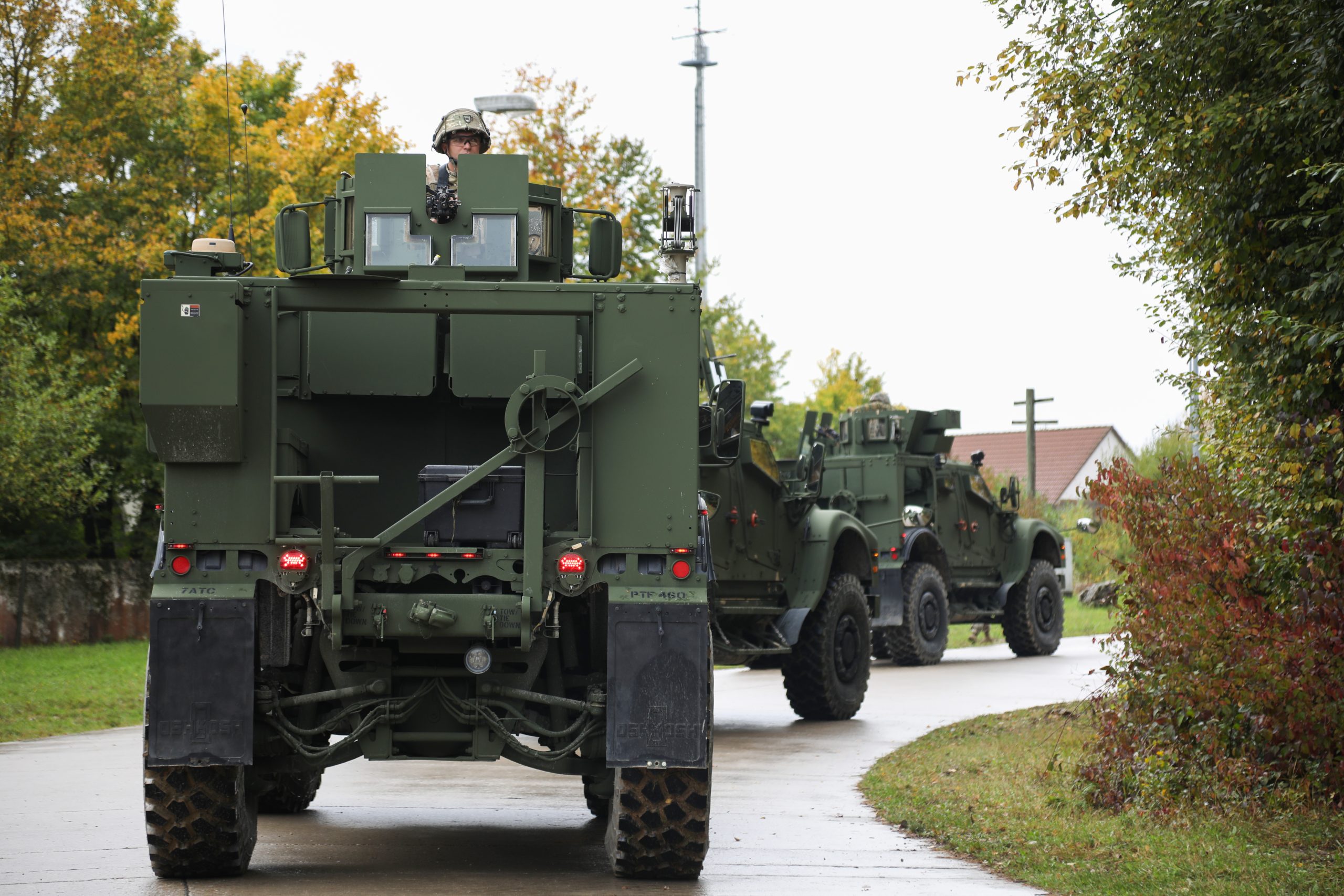
Georgia’s NATO Accession: A Process Without Progress
With regards to Georgia’s NATO accession process, not much has changed since the NATO Bucharest Summit in April 2008. In other words, NATO maintains an open-door policy for Georgia and recognises Georgia’s independence, sovereignty and territorial integrity but no Membership Action Plan (MAP) has been offered to Georgia thus far. Without a MAP, Georgia is effectively stuck in accession limbo, a situation which is likely to continue for the next five to ten years with no guarantee of success. There is one additional factor that concerns Georgia. Prior to the Madrid NATO Summit in June 2022, Georgia and Ukraine were both treated as aspirant members of the Alliance. After the summit, Georgia’s bid was decoupled from Ukraine’s, its status was downgraded and likened to that of Bosnia and Herzegovina, and Moldova – two countries that have a long way to go before they will be able to join NATO.
Although NATO established and enhanced several result-oriented programmes with and for Georgia, such as the NATO-Georgia Commission (NGC), the Annual National Programme (ANP) and the Substantial NATO-Georgia Package (SNGP), these programmes are no substitute for a MAP even though they have an added value for Georgia. These programmes have at least created possibilities for the country to prepare itself for membership, even if joining the Alliance presently remains beyond the horizon. However, there remain some mismatches between Georgia’s aspirations and its capabilities in the security sphere. Georgia, as a Black Sea littoral state, aspires to contribute to the security of the entire Black Sea region, however, the fundamental problem is that Georgia lacks a Navy, possessing only a Coast Guard. This service is firstly not equipped for military conflicts, and secondly, is under the command of the Ministry of the Interior rather than the Ministry of Defence (MoD), and lastly, it does not participate in joint exercises with the Alliance. As such, major questions of capability, coordination, as well as cooperation and interoperability remain unsolved.
The Alliance’s problems with Georgia primarily revolve around several hard realities – Georgia is located too far away from its centre, plays a rather marginal role in the Black Sea Region despite bordering Turkey, and is extremely difficult to defend in the face of Russian aggression. As a result, NATO has so far left Georgia in the position of partner but not a member. Georgia’s accession efforts are encouraged, but the possibility that Georgia may remain a partner rather than becoming a member requires acknowledgement by the Georgian government.
Internal Political Polarisation
Political polarisation is one of the most crucial problems of Georgian society, which is broadly divided into supporters of the current GD government, and the supporters of the opposition. There are many countries around the world with polarised societies, but in Georgia’s case, the country also wishes to become a member of the European Union (EU), and the present political polarisation makes it harder for Georgia to achieve this goal. While the GD government strives toward EU candidate status, its chances of attaining this goal are slim, since it is not implementing the 12-point recommendations made by the EU despite saying otherwise. What is more, there is a lack of national consensus regarding the implementation of these recommendations.
Complicating things further, the Georgian government maintains cordial relations with Russia due to its economic dependency on the latter. According to the aforementioned report by Transparency International Georgia, a total of USD 1.135 Bn were sent from Russia to Georgia in the first nine months of 2022. The share of remittances from Russia in relation to Georgia’s total increased to 40% in 2022, compared to 17.5% in 2021. The last time similarly high rates were achieved was 2015. Therefore, the balancing act policy is becoming very difficult to maintain because of contradictory demands from the EU and Russia. While the former stands for good governance, an independent judiciary, as well as critical and transparent parliamentary debate, the latter offers its sizeable market for Georgian goods, which could be closed at any moment, and remittances from Georgians working in Russia are no less important.
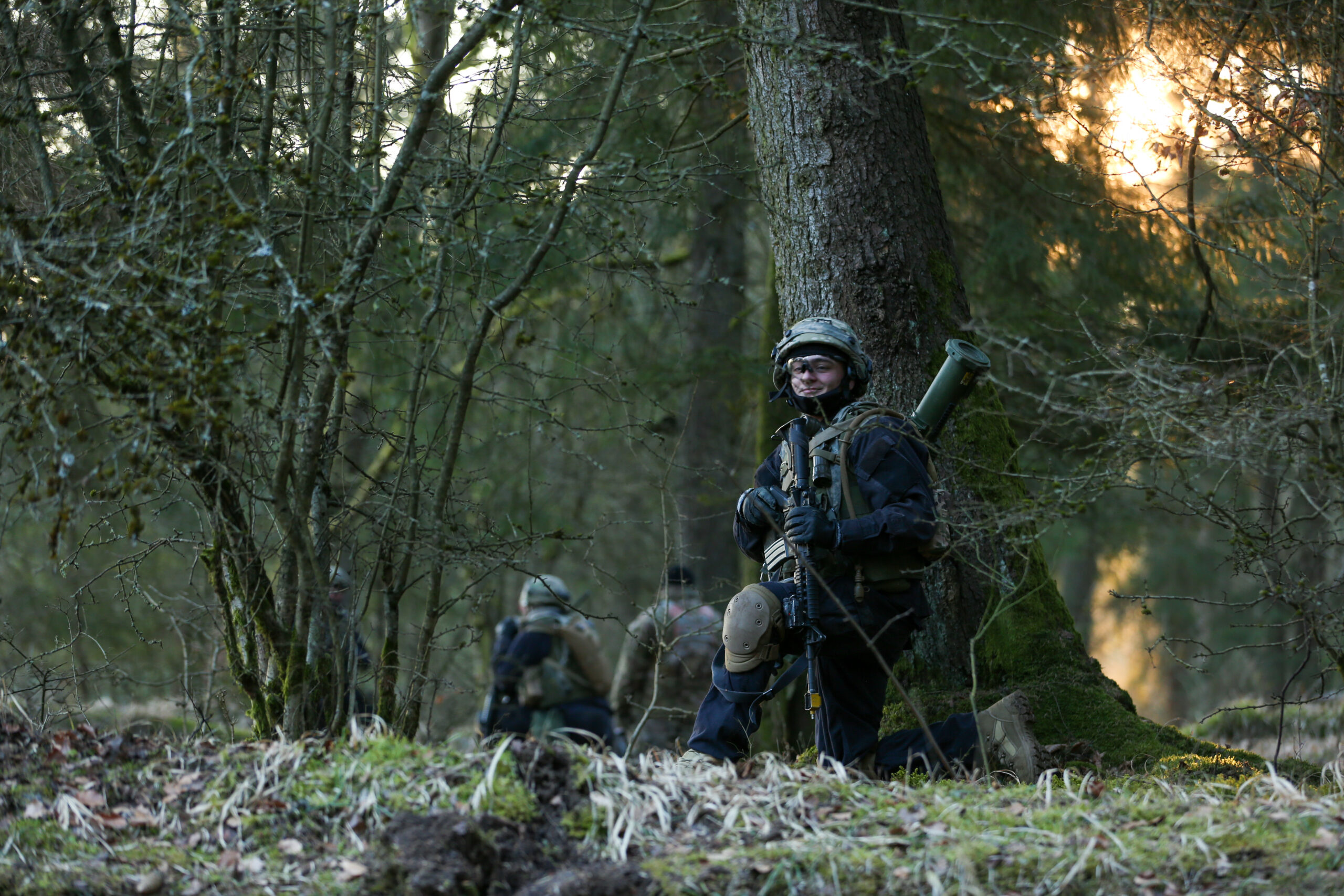
Procuring Weapon Systems
A lesson learnt by the Georgian MoD from the 2020 Nagorno-Karabakh conflict between Armenia and Azerbaijan is that the country needs to be militarily prepared for any potential conflict. Georgia has proposed establishing a new Cyber Command, with assistance from the UK, but still needs to improve the Georgian Defence Forces. This would require not just acquiring modern equipment, but also continuous training, and joint military exercises with NATO partners. Otherwise, Georgia would have no chance to survive in a military confrontation with Russia. Therefore, procuring UAVs and loitering munitions, as well as improving their cyber security capabilities are core priorities for Georgia.
With regards to the procurement of UAVs, there are some signs of progress. Polish company WB Group and Georgian company Delta signed a contract for the production of UAVs through their joint venture (JV), Delta-WB, which was established in May 2022. The first systems are expected to be delivered to the Georgian Defence Forces in 2023. In addition, a training facility under the control of Delta-WB is expected to be established, to conduct training and enhance the skills of Georgia’s UAV operators.
On the other hand, progress in other areas has been slower. In August 2021, Georgia was reported to have requested 46 Javelin Command Launch Units (CLUs) and 82 FGM-148 Javelin missiles from the US, however despite approval from the US State Department, the deal has not so far not progressed.
Conclusion
The Georgian MoD realises that the extensive use of UAVs and loitering munitions in the 2020 Nagorno-Karabakh war represented a turning point in modern warfare. Similarly, the Russia’s early use cyber-attacks against Ukraine underscored the importance of well-prepared cyber security forces. Georgia’s proposal to establish the Cyber Security Command in 2023 would therefore seem to be relatively timely.
As for Georgia’s NATO membership, the Alliance remains divided and, therefore, indecisive about granting Georgia membership. It is of utmost importance to emphasise that a MAP for Georgia and eventual membership of NATO is not decided by the military commanders, who have praised Georgia’s military reforms, but by the political leadership, which presently lacks consensus on Georgia’s membership. Therefore, the Alliance should strive to achieve an internal consensus on this issue. Until NATO can agree, Georgia will not get a MAP and accede – and Russia will be the only winner of the NATO stalemate. Russia knows this and remains vigilant when it comes to Georgia’s current and future status, as it continues to monitor Georgia’s cooperation with NATO.
Lastly, Georgia’s internal political polarisation continues to hinder the country from making progress toward EU and NATO membership. Here, there may be no real solution until the next parliamentary elections in 2024.
Eugene Kogan




